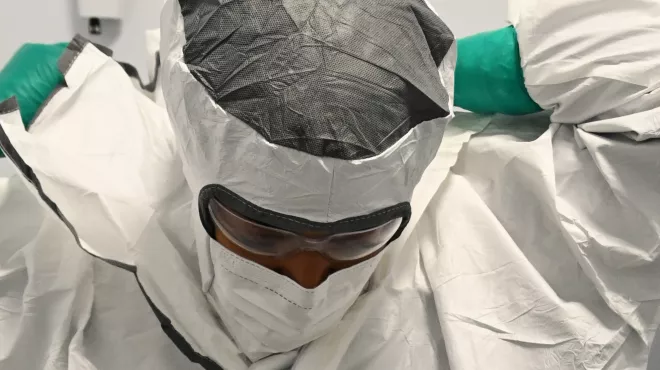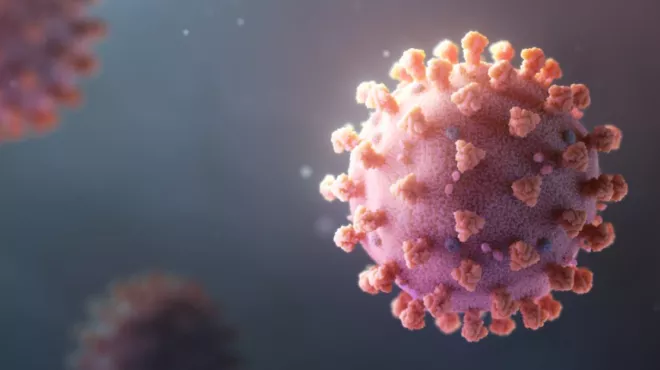How two years in a Novartis lab changed Johnny Castillo’s life.
Reigniting a passion for science
How two years in a Novartis lab changed Johnny Castillo’s life.
In 2014, Johnny Castillo's dream of attending grad school and pursuing his own research seemed an impossible one. The 27-year-old was working as a lab technician in Panama after being rejected from a PhD program. He’d excelled in his science classes at Universidad Latina de Panama, achieving top marks in immunology and other tricky subjects, but he couldn’t see a clear path forward. He’d come so far from the small town in the Dominican Republic where he lived as a young boy. Was this the end of the road?
Fast-forward two years and Castillo—who recently completed the Postbaccalaureate Scholars Program at the Novartis Institutes for BioMedical Research (NIBR) in Cambridge, Mass.—has had five of the top grad schools in the United States battling for him. The NIBR program gives high-potential recent college graduates who are under-represented in the sciences the intensive, accelerated training experience and exposure needed to continue their academic training at top research institutions. Castillo recently accepted a place at the University of North Carolina, Chapel Hill, where he will matriculate as a PhD student in Biological and Biomedical Sciences in the fall.
As you might expect, perseverance and hard work feature large in his story, but for Castillo, the biggest lesson he has learned is letting go of a consuming need to prove himself.
Born to a single mother, Castillo lived with his family in Santiago de los Caballeros when he was little. Life wasn't easy. He missed several years of schooling when the family was forced to choose between education and food. When Castillo was three, his mother left for Panama to find work. He and his brother were raised by their grandmother until his mother was able to send for them nine years later—a period that Castillo believes had a profound impact upon him.
"My mother has a warrior's heart, a huge work ethic and a furious commitment to make life as easy as possible for her sons and her mother,” says Castillo. “But when your parent leaves you as a young child—even for the best intentions—it can be easy to interpret that as meaning that they don't care for you. I spent the next two decades trying to earn my mother's attention by studying as hard as I could."
That all-consuming quest led to Castillo winning three scholarships for college, where he discovered a genuine passion for science. For the first time in his life, he forgot about grades, fascinated by how stem cells give rise to new tissue, how the immune system recognizes foreign invaders, why it tolerates a fetus during pregnancy.
"I would return from class each day to read books and papers and watch YouTube videos to learn more,” says Castillo.
He continued to achieve top marks, motivated by a thirst for knowledge, and graduated with honors. But then he encountered something unfamiliar—failure. Graduate schools in the United States didn’t seem to want him. Their decision felt personal, as if he was being abandoned again.
A dream deferred
After accepting a technician position to pay the bills, Castillo came across NIBR’s Postbaccalaureate Scholars program, an alternate path to grad school that gave him hope. Unfortunately, rejection reared its head again when Castillo failed to get a place in the program.
He felt depressed for a couple of weeks. But then he dusted himself off, reapplied and was accepted.
"I decided I was going to show them how much I wanted it, and that they had lost a really good candidate," says Castillo.
His passion and commitment impressed Feng Cong, a lab head at NIBR who focuses on understanding molecular pathways that play a role in cancer. Cong welcomed Castillo into the lab, where he was given a mentor—postdoctoral researcher Xiaomo Jiang—and a project—exploring how cancer cells develop resistance to a class of drugs called EGFR inhibitors, which are often used to treat lung cancer.
Castillo got off to a bumpy start. He set out to perform a genome-wide screen on lung cancer cells, hoping to identify genes that play a role in drug resistance. He started with lung cancer cells that were still sensitive EGFR inhibitors. The plan was to use CRISPR, an emerging genome-editing technology, to knock out thousands of genes in the cells and determine which ones might be involved in resistance. Castillo hoped to knock out a different gene in each cell, add an EGFR inhibitor and watch to see if the cell survived, which would indicate that the knockout made the cell resistant to treatment.
Although he planned to use next-generation sequencing to conduct many experiments in parallel and speed up the screen, Castillo still faced a lot of work—and a steep learning curve. He had to learn all of the methods from scratch, laboring for months to get colony formation assays, western blots, qPCRs, immunofluorescence and other tools working.
"While it is energizing having young students in the lab because they’re ambitious and eager to learn, they often lack experience in running experiments,” says Cong. “Johnny was no exception.”
Expectations were high. And Castillo was taking a difficult course at Harvard, which added to his workload. Stressed by the volume of tasks and the mistakes that he was making, Castillo finally confessed to his mentor that he was struggling.
“At first I was a little impatient as I didn't realize Johnny lacked lab experience,” says Jiang (now a lab head at NIBR). “But after he spoke up, I realized that I needed to find a communication and teaching style that suited the way Johnny learned.”
Castillo also needed to make adjustments in order to succeed in the lab: ones he describes as “life-changing.”
Transformation
Even after the heart-to-heart conversation with Jiang, Castillo still found that he was having a tough time. The intense lab environment—and the failures inherent to research—dampened his hallmark enthusiasm. One cold, bleak winter's day, seven months into the program he was at his lowest ebb.
“I just couldn't get out of bed, and lay there questioning what was motivating me to go to work when I was finding it so tough and was battling dark thoughts every day,” he says. “That was the light bulb moment. That's when I really realized how destructive it was for me to seek constant approval and take every failure in the lab to heart.”
After all, scientific advances come through trial-and-error learning. In research, resilience is essential. Castillo needed to shift his mindset and reignite his passion for science.
“I’m contributing to a collective knowledge of biology that will ultimately benefit patients' health,” says Castillo. “That’s my true motivation.”
From that day onwards, everything changed.
Fresh outlook
Castillo no longer suffers for days when an experiment fails, heeding his mentors' advice to focus on potential solutions rather than dwelling on what went wrong.
With guidance from Cong, Jiang and Hui Wang (his mentor after Jiang), Castillo was able to achieve promising results. He identified a number of genes that are likely to be involved in resistance to EGFR inhibitors, pointing the way toward new treatment strategies. Lab members are currently exploring the molecular mechanisms of the hits from his screen.
"Johnny is special,” Cong says. “I wasn’t surprised when he received offers from multiple grad schools. His huge energy and sincere passion for science are inspiring. And this experience confirms for me how important it is that talented people like Johnny are given exposure to the science being done in labs like ours."









